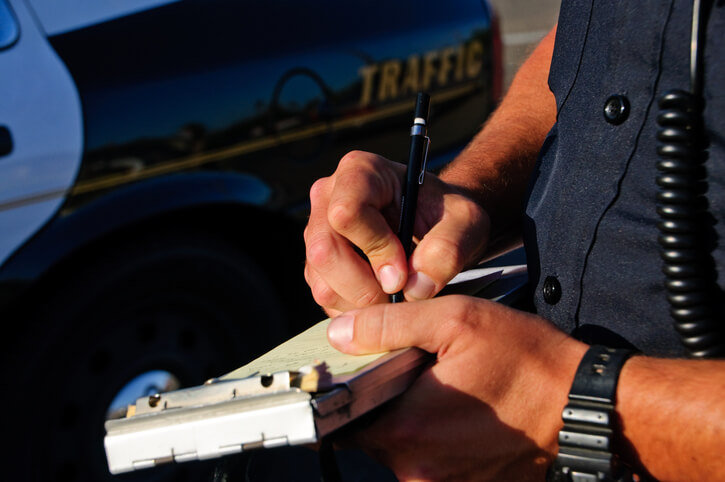While you may think a traffic infraction is a minor issue — an infraction, not a transgression — traffic infractions can have severe, long-lasting ramifications for your personal, professional, and financial livelihood.
Your infraction could result not only in stress, fines, and all of the hand-wringing and paperwork that come with a potential court date but also in potential incarceration, depending on the type of traffic infraction.
If you recently got a traffic ticket and are unsure of how to handle it or where to turn, read on.
What is a traffic ticket?
When a law enforcement officer catches you committing a traffic violation, that officer will give you a written notice known as a traffic ticket, a traffic citation, or an auto citation. This notice explains to you the manner in which you have violated a traffic law and is also legally regarded as proof of your traffic violation.
What are the potential ramifications of a traffic ticket in New York?
When considering what the consequences might be for a traffic infraction in New York, one must differentiate between minor traffic violations and major traffic violations.
Minor traffic violations (such as failing to obey traffic devices, failing to yield, failing to stop at a stop sign, and failing to obey the speed limit) have much milder ramifications than major traffic violations (such as vehicular manslaughter, assault with a vehicle, attempting to flee law enforcement, and speed racing).
If a traffic infraction is punishable by imprisonment, that infraction is considered to be a criminal offense. In general, minor infractions are considered to be civil offenses, whereas those who commit criminal offenses like major traffic infractions might find themselves in court.
Because there is not a comprehensive, set-in-stone list of federal infraction classifications, the manner in which an insurance company classifies traffic citations and the manner in which a state classifies traffic citations can differ significantly.
Minor Traffic Infractions
If you commit a minor traffic violation, you won’t go to criminal court in most states. Instead, you will go to traffic court, and your infraction will most likely not be considered a criminal offense. Here are a few examples of minor traffic infractions:
- Breaking the speed limit
- Lane splitting
- Texting while driving
- Running a red light
- Running a stop sign
- Failure to yield
While you likely will not be facing incarceration if you commit a minor traffic infraction, you will be subject to small consequences such as having to pay a fine or appear in court.
Major Traffic Infractions
Major traffic infractions are those that are most often classified as criminal offenses. These include but are not limited to the following:
- Failing to stop for a law enforcement officer
- Fleeing a law enforcement officer
- Vehicular manslaughter
- Assault with a vehicle
- Using a vehicle to commit a felony
- Operating a vehicle under the influence of drugs or alcohol
- Speed racing or drag racing
- Reckless driving
- Negligent driving
Major traffic violations are typically misdemeanors or felonies, which means that those who commit major traffic violations face the possibility of jail time.
Seeking Legal Aid for a Traffic Infraction
If you have a traffic infraction or a traffic infraction that is legally considered to be a criminal offense, the first thing you should do is seek legal representation. While a traffic violation might seem like a minor issue, it can have devastating effects on your future.
The right representative will be able to help you understand your legal journey and guide you to the best course of action. Contact the New York Traffic Ticket Lawyers. Our firm specializes in traffic infractions and serves clients all over Central New York.

